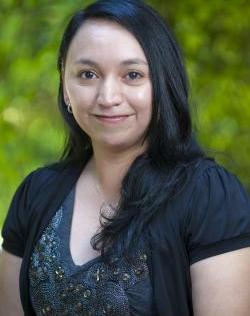
Lizette Rangel, who grew up in a low-income Latino community, had two life choices.
The easy choice: A life of gangs, early pregnancy, poverty and a daily struggle to live.
The hard choice: A life of difficult study and education.
Fortunately, Rangel chose the hard path, embraced a “nerd” attitude and devoted herself to studying to better her situation.
She earned a bachelor’s degree in biology from the University of Houston and interned to help implement a diabetic health education program to the community. She also earned a master’s degree in public health from The University of Texas School of Public Health. She is currently a research coordinator at Baylor College of Medicine, coordinating outreach events, screenings, and recruiting minority study participants.
She wants to continue learning skills and strategies to steer more Latinos past cultural and language barriers to also make the right choices in life and health—“it’s not just about treating people with diseases, it’s about preventing disease,” as she says.
That’s why Benavidez applied for and was selected to joinÉxito! Latino Cancer Research Leadership Training, which aims to increase research in Latino cancer disparities by encouraging master’s-level students and health professionals to pursue a doctoral degree and a cancer research career.
After applying toÉxito!, Rangel received her admissions letter to the doctoral program at The University of Texas School of Public Health.
She believes the 2012Éxito! Summer Institute gave her skills she’ll need to have success in the program.
“Being in the Éxito! program, I’ve been able to see a lot of Latino role models, and how they’ve undergone a lot of hardship, and they’ve been able to do it in spite of that,” Rangel said. “In Mexico we have this saying, si se peude, we use it for soccer. Definitely now, being in this program, meeting these professionals, these Latinos, and also being able to meet other students that are in the situation, they have hardships, I felt like,si se puede. Yes we can.”



